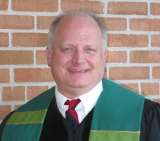Since Easter falls on one of the later possible dates this year, Lent will not begin until March 6th: that means that this is one of those rare Februaries that is “Lent-free.” That’s probably a good thing, since the longer gap between Epiphany and Lent this year is going to allow us to work on a couple of projects that need attention.
The first task that we will spend some time introducing and developing are the changes in church governance and the way that we approach doing ministry that were introduced a couple weeks back in worship. As Salem’s leadership has looked at the challenges facing us as a congregation, we have come to the conclusion that the model of a Consistory that is charged with taking care of every task and detail of ministry is no longer serving us well. Too much responsibility falls on the shoulders of too few people, resulting in frustration, burn-out, and reluctance to become involved. Through study, reflection, and prayer, we feel led to propose a model of governance and ministry that strongly encourages people to find an area of the church’s ministry that they wish to be a part of. Persons involved in those particular ministries would then be given the freedom and the responsibility for carrying the ministry that takes place in their area. With the responsibilities of ministry being spread out to a handful of “ministry teams,” the need for a large, central governing body diminishes, and a smaller Consistory, responsible for carrying out fewer duties, can take its place.
The division of “ministry teams” that we would like to propose comes from Robert Schnase’s book of the biblically-based Five Practices of Fruitful Congregations. For those of you who were not involved in the study that we had of this book two years back, those practices are Radical Hospitality, Passionate Worship, Intentional Faith Development, Risk-Taking Mission and Service, and Extravagant Generosity. Ministry teams would develop around those five categories, plus a sixth—Administration and Oversight. Persons could choose to be a part of a ministry team, be as involved as they wish, and be involved as long as they wish.
Moving forward, we see the need to work on two actions: introducing the model of the Five Practices and encouraging people to share their input on how we can put together a better model of governance and ministry. An introduction to the Five Practices–“A Celebration of Ministry” will be held after worship on Sunday, February 17th, in Fellowship Hall; a repeat of that session will take place on Thursday, February 28th at 7:00 p.m. for those who were unable to attend the first session. Input gathering/listening sessions will take place (at times to be announced) in March. If we are going to move forward on this initiative, we will need everyone’s help. Every idea and suggestion is valuable.
I realize that change is difficult to face (and the older we get, the less we welcome it). Personally, I have long outgrown the need to change things just for the sake of change. However, if change can bring about improvement and growth, we should not be afraid or reluctant to accept it. I truly believe the changes that we’re proposing at this time fit into that category.
The second task for February is the setting aside of time to discuss a proposed resolution that will come before the Wisconsin Conference at its annual meeting this April. Per Conference by-laws, resolutions may be proposed in one year, discussed by congregations in the year to follow, and voted on the next meeting year. We are currently in the discussion phase before ratifying vote. The resolution in question concerns a repudiation of the Doctrine of Discovery (if that term doesn’t sound familiar, don’t feel bad: I didn’t know about it myself until it had come up in last June’s annual meeting). In short, the Doctrine of Discovery refers to a Papal Bull from 1493, which gave Spain the right to take whatever lands non-Christians were occupying in the New World. That principal was affirmed in the 1823 Johnson v. McIntosh case argued before the Supreme Court, so it does have an impact on modern case law in this country. We will hold this meeting on Tuesday, February 26th in the Library Room at 7:00 p.m. The meeting is strictly informational. We will not be deciding whether or not Salem will take a stand on the resolution or instructing our delegates on how to vote on the resolution (we’ve never done that in my time at Salem).
I think that’s about enough to discuss during a Lent-free February. Blessings to you all.
Your servant in Christ,
Rev. Jim Hoppert

